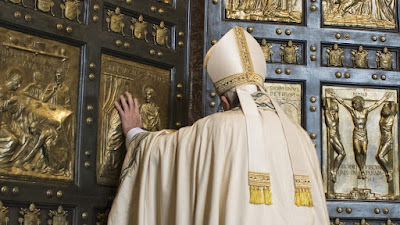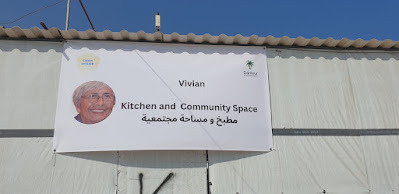On Sept. 10, I gave the
keynote address at the annual Manitoba Multifaith Council annual general
meeting. I used the occasion to give an update on the Religion in the News project
at the Free Press, which is financially supported by about 25 faith groups and organizations and hundreds of individuals in Winnipeg.
I also added some personal reflections on what the last 11
months have been like for me as a religion reporter (hint: hard at times). I
closed with some personal thoughts about how Indigenous people might be able to
help the interfaith community find ways to address the current impasse due to
the war between Hamas and Israel. If you are interested, read on.
2024 marks the fifth anniversary
of the Religion in the News project at the Winnipeg Free Press.
It was in March, 2019 when the
first story sponsored by the project appeared. It was written by Brenda
Suderman and was about how Father Sam Argenziano was being honoured for decades
of service to the city’s Italian Catholic community.
As I like to tell people about the
article: “There was a story about a priest on the front page of the Free Press
the other day—and he wasn’t even in trouble!”
That was the first of what’s
turned out to be over 975 stories about local faith in the Free Press since that time. When you add in
the columns on the faith page, there have been over 1,200 stories and
reflections about faith since 2019.
All of this is thanks to local faith
groups, organizations and individuals that have supported the Project for the
past five years—and especially to those who came on board the first year for
this crazy idea to fund religious journalism at the Free Press.
Together, you have created something
unique in all of Canada and, indeed, all of North America. There is no other
daily media outlet in the U.S. and Canada that supports faith coverage in this
way.
At the same time, you have made
Winnipeg the only city in Canada that not only has a faith page, but also a
faith beat—no other newspaper covers local faith the way the Free Press does.
This is a big change from 25 years
ago, when most daily newspapers in this country had a faith page and a faith
reporter. Since Mary Hynes retired from the CBC in December, 2023, and wasn’t
replaced by that media organization, that makes me the only faith reporter in
the country—a strange position to be in, I have to say.
So, take a bow! You created
something special here in Winnipeg.
While I am glad about the number
of articles that have been published, for me the Project is more than the volume
of stories. When it was created, I had other less tangible goals in mind.
One of those goals was to
highlight the role that faith plays in the not only in the faith community, but
also in the wider community. It’s impossible to tell the story of combatting hunger or homelessness
in Winnipeg without also telling the story of faith-related groups that provide
food, shelter and other services to hungry and homeless people.
In other words, I wanted
Winnipeggers to see that faith was more than something that some people did in
their places of worship, or that only was featured on the faith page. It
impacts much of daily life in the city through people of faith and through those
places of worship—and those stories are found all throughout the paper.
Another goal was to provide
balance. News about scandals
and religiously-motivated violence will always make the news. But through the
Project, I wanted to make sure the positive side was also reported—like the
majority of priests like Father Sam who never get into trouble.
Which isn’t to say I have reported
about some of the negative things associated with faith—things like the legacy
of residential schools. And I have chronicled the relentless decline in
religion in Manitoba and across the country as attendance and affiliation
falls.
But there are also many positive
stories about how people of faith are making a difference in this city. Those
deserve to be shared, too.
It was also a goal of the Project to
try to reduce hatred. This
is important at a time when antisemitism and Islamophobia are on
the rise. My hope is that it would be harder for people to hate if they saw the
face of another person in a story we wrote.
Is it working? I don’t know; it’s hard to measure and there’s
no way to prove it. But I do know that, unlike places like Montreal, Vancouver
and Toronto, we in Winnipeg have not seen the dramatic violence and vitriol
over the October 7 Hamas attacks and the war in Gaza—even if there have been
some incidents and tension.
Which is not to say Jews and Muslims in Winnipeg don’t feel
anxious, insecure and unsafe; many do. There have been reports of threats,
hateful e-mails and intimidation by members of both communities, and a few
cases of vandalism.
But at least we haven’t seen a firebombing of a synagogue or
mosque—so far. I hope it stays that way.
Speaking personally, it was my
goal to use my skills to celebrate faith in Winnipeg—to stay busy and engaged
in meaningful activity in semi-retirement. And that has been fulfilled! It’s been my
privilege to serve the faith community as a faith reporter and columnist.
Through it, I have made many new friends and learned many new and interesting
things about different faith groups in the city—and enjoyed some wonderful
food! Thank-you for the privilege of serving in this way.
And yet, I wouldn’t be honest with
you if I didn’t acknowledge that the last 11 months have been hard.
I have watched—and reported—as tensions
over the Oct. 7 Hamas attack on Israel and the war in Gaza have damaged
interfaith relations and relationships in Winnipeg and across Canada.
One Winnipegger who has been
involved in interfaith relations for over 50 years told me he has never seen
relations between people of different faith groups as strained as they are
today.
“This is the most discouraging
time I’ve experienced,” he said, adding that social media is one of the biggest
contributors to challenges since it “gets people all heated up.”
I know a little bit about that
heat. The past 11 months have been hard for me as a faith reporter. No matter
what I write about that situation—or what I don’t write—it seems that someone
will be angry and will let me know about it.
For some in Winnipeg, I am
pro-Hamas if I write about Palestinian and Muslim perspectives and pain. Others
see me as an Israeli government dupe if I write about the pain being felt by local members of the Jewish community.
I suppose I could take some
comfort from being attacked by both sides—it means I’m in the middle. But the
e-mails can still sting.
And let me quick to say, as
clearly as I can, that what’s happening in the Middle East today is not a
religious conflict. Yes, there are religious undertones. And yes, there are
some on both sides who use religion to support the conflict. But foundationally
it is not a war between differing religious groups, ideas and beliefs—and I
hope it will never become that in Winnipeg.
If the conflict isn’t about
religion, then why am I—the religion reporter—writing about it? That’s a good
question.
The reason is because I have good
connections and relationships in the Jewish and Muslim communities. The Free Press knows that and has called on me to use those connections to reach out
to people in both groups in order to hear their concerns and fears—and then write
about them.
It's an honour to be trusted by
members of both communities to tell their stories. But it’s also a burden,
since it can sometimes lead to criticism as some people misunderstand my role.
Some, it seems, can’t distinguish
between a news story—reporting what people are saying and thinking about an
issue—and a column, which contains my thoughts and opinions. I try to tell them
the difference, but not everyone seems interested in knowing about it.
And so a story about how Muslims
are observing Ramadan while feeling the pain of people in Gaza is seen by some
as being anti-Jewish. For others, a story about local Jews going to Israel on a
service trip is seen as being anti-Palestinian.
Some days, I just can’t win.
Despite this, I comfort myself by
thinking that maybe it was just for such a time as this that the Project came
into being, a time when times are tough and people are on edge.
Maybe—just maybe—through the
Project people caught up in the situation in the Middle East can see themselves
and their pain represented in the Free Press and feel heard.
And maybe—just maybe—people in
pain can also read about the pain of others and empathize and sympathize just a
little bit, realizing they aren’t the only ones feeling the hurt.
I don’t know if that will happen. I
hope it does. But what I do know is there isn’t any other city in Canada where
there has been as much local coverage about how people are dealing with events
an ocean away. And for that, I take some satisfaction.
As I conclude this presentation, I
want to take off my reporter hat for a moment and speak as a member of the
larger inter-faith community.
Earlier this year Loraine MacKenzie
Shepherd received the Lieutenant Governor’s Award for the Advancement of
Interreligious Understanding.
Loraine is a former minister at
the Augustine and Westworth United churches here in Winnipeg, and has been
involved in interfaith work for decades.
At the ceremony, she spoke about
the ways faith communities have traditionally—and usually successfully—sought
to overcome differences, including during times of heightened tensions.
One way, she said, is by tapping
into the compassion and wisdom found in all faith traditions to find the
commonalities in each religion.
Another is by resisting “us/them
binary thinking, especially in the heat of the moment,” and by being “equally
concerned about violence and human rights violations on every side of a
conflict.”
But what to do when those ways
don’t seem to be working? That’s when Loraine wondered if it’s time to invite
Indigenous people, with their traditions of circles of healing and
reconciliation, to “help us sit by the fire and have difficult conversations,”
as she put it.
Perhaps, she said, that might be
“a third way out of our current impasse that deters interfaith gatherings.”
That idea intrigued me. Could
Indigenous people offer a way out of our current challenges? I reached out to
Stan McKay, an elder and knowledge keeper at Fisher River Cree Nation, to see
what he thought about the idea.
For starters, McKay was pleased simply
to have been asked the question. “We usually aren’t asked to contribute to
solving some of the world’s problems,” he said. “Instead, we are often seen as
the problem.”
If asked to help faith communities
navigate this challenging time, McKay said he thought Indigenous people would
be open to being “part of sharing ideas and possibilities.”
At the same time, he added, they
would do it only if invited, and then with caution and humility. Indigenous
people, he explained, “know only too well what it is like to be aggressively
imposed upon.”
As for how they could help, it
could be a series of circle meetings where various perspectives are shared in a
way that “allows for conversation,” McKay said, noting that Indigenous people
“understand there are many truths . . . it’s a mistake to think all truth is
only in one culture or way of life.”
The circle meetings would not be
opportunities for making statements and presenting research, as happens in many
other settings, he said. Instead, it would be a time to share stories. “We are
a people of story,” he said of Indigenous people, adding “everyone has a story,
and needs a safe place to tell it.”
Also important would be taking
time, not rushing things, McKay said. “It takes time to build consensus, to
hear each story, to build community,” he said.
And if, after sharing, what if a
decision about agreement can’t be reached? That happens, McKay said, adding
that agreement “can’t be forced. People, and the health of the community, is
more important than making a decision.”
For me, listening to MacKenzie
Shepherd and McKay brought to mind something John Ralston Saul said in his book
A Fair Country:
Telling Truths About Canada.
In the book, he talked about how
Canada is what he called a Métis nation, a country heavily influenced and
shaped by Indigenous ideas of egalitarianism, of a proper balance between
individual and group, and of a penchant for negotiation over violence.
But, he went on to say, the
history of Canada shows how, over the past centuries, non-Indigenous Canadians
forgot the wisdom offered by their Indigenous neighbours. Instead, we believed
we, and we alone, had all the best answers.
If Canada is to be successful as a
nation, and if we are to find ways to overcome the conflicts that raise tension
between us, then maybe we need to reconnect with that original Indigenous
wisdom and work together in this fair land.
If that’s true for Canada at
large, perhaps it is also true for interfaith relations at this challenging
time. Maybe Indigenous people have much to offer when it comes to finding ways
share stories, to hear each other and to create space for difficult conversations.
Considering the situation facing
us these days, perhaps that’s a good option for how to move forward.
And if it happens, the Religion in
the News Project will always be there to help.


.jpg)













